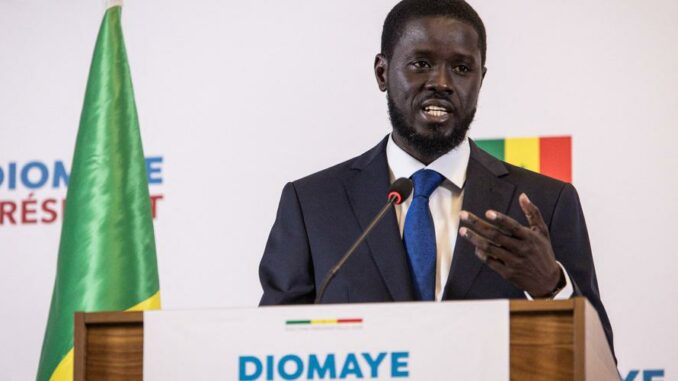
Senegal awakened to a new chapter with the election of Bassirou Diomaye Faye, a former tax inspector and political newcomer who captured the hearts of voters, especially the unemployed youth, with his promise to combat corruption and overhaul the economy. Backed by opposition leader Ousmane Sonko, Faye’s victory, despite being released from prison just days before, marks a significant shift in the nation’s leadership, poised to become its youngest president.
In his inaugural address, Faye reiterated his commitment to transparent governance and fighting corruption, igniting celebrations across the capital. However, the return to normalcy the following day signals the nation’s readiness to move forward under new leadership. Former Prime Minister Amadou Ba, supported by incumbent President Macky Sall, gracefully conceded defeat, acknowledging Faye’s clear lead in preliminary results.
The election, marred by prior unrest stemming from arrests and concerns over presidential term limits, underscores Senegal’s struggle to maintain its democratic reputation. Faye’s anti-establishment stance and promises of economic reform resonated deeply with the populace, particularly the youth grappling with unemployment.
Faye’s ascent from a small town to the presidency epitomizes his dedication to public service, exemplified by his early career as a tax inspector and subsequent leadership within the opposition party. While his victory signals potential policy shifts, analysts caution against overly optimistic expectations, citing challenges such as parliamentary dynamics and financial constraints. Nevertheless, Faye’s presidency symbolizes a new era for Senegal, marked by hope for a brighter future under his leadership.
